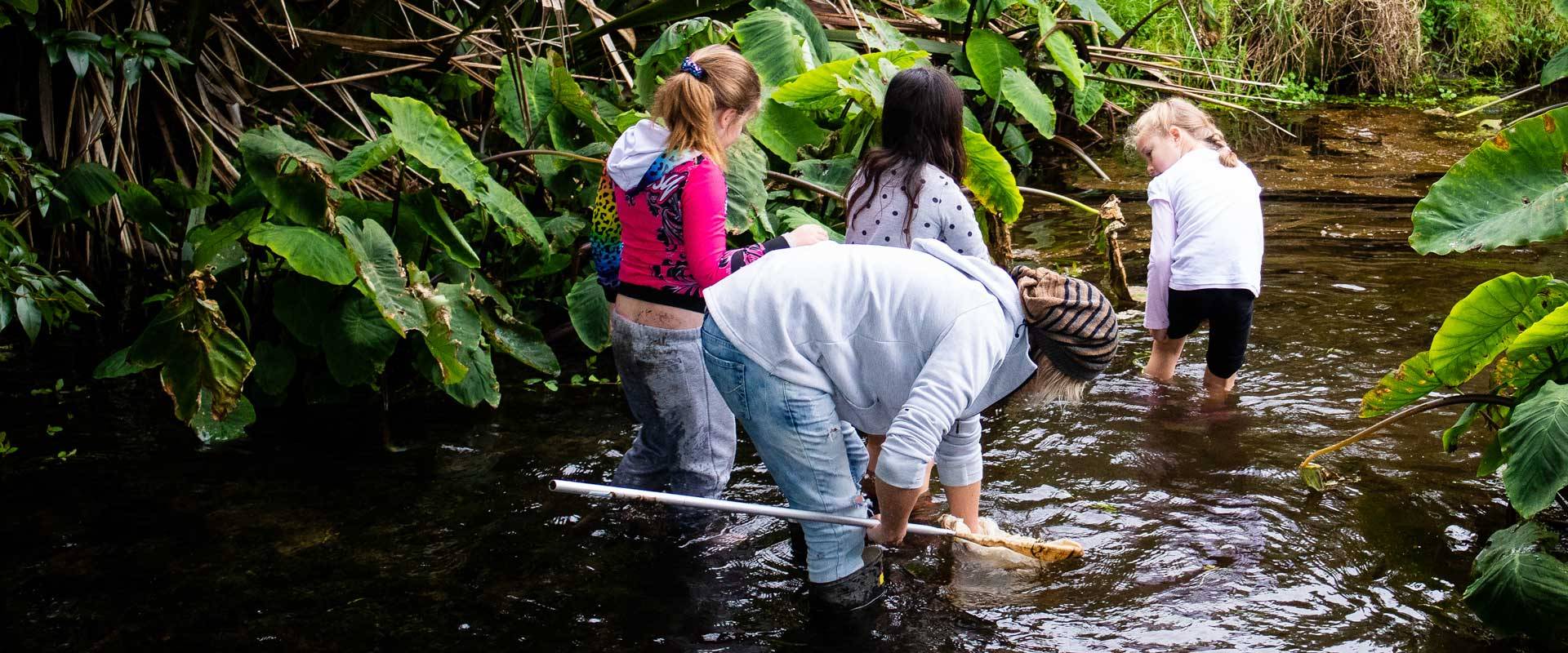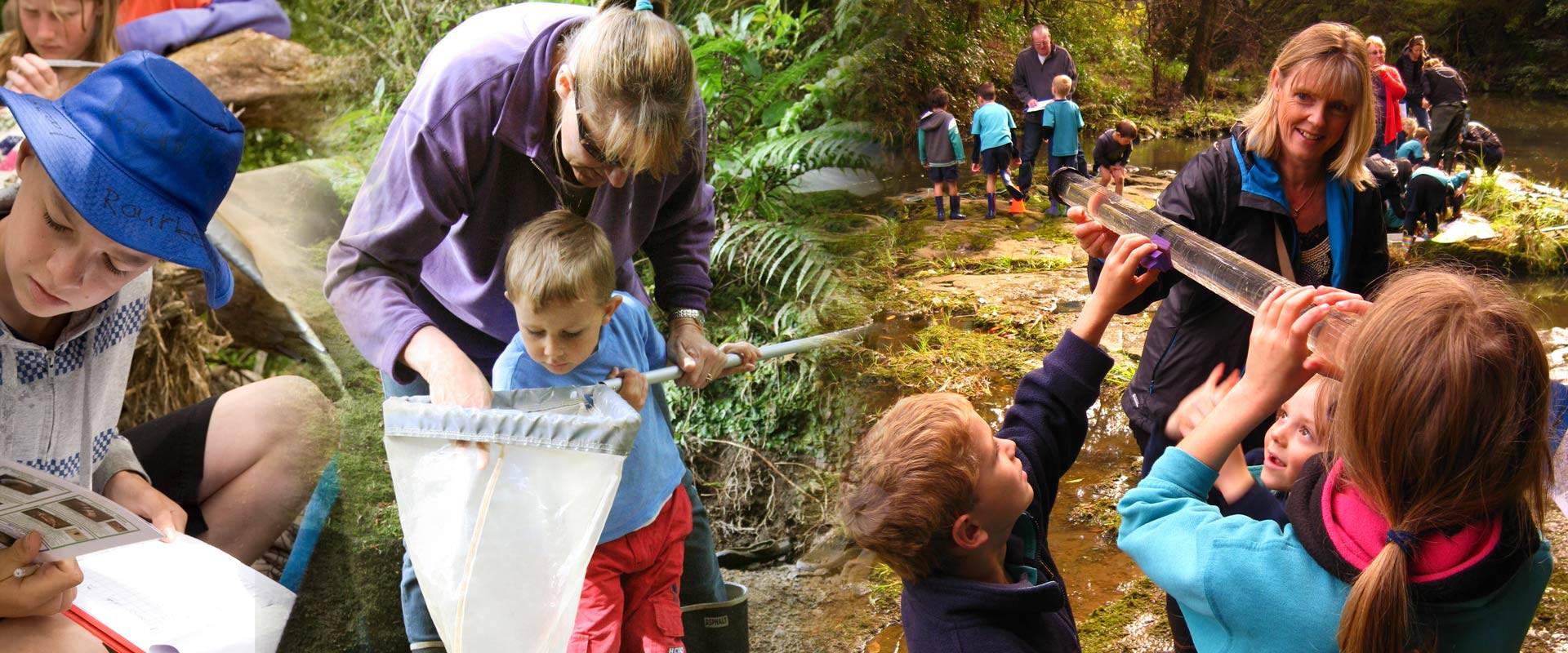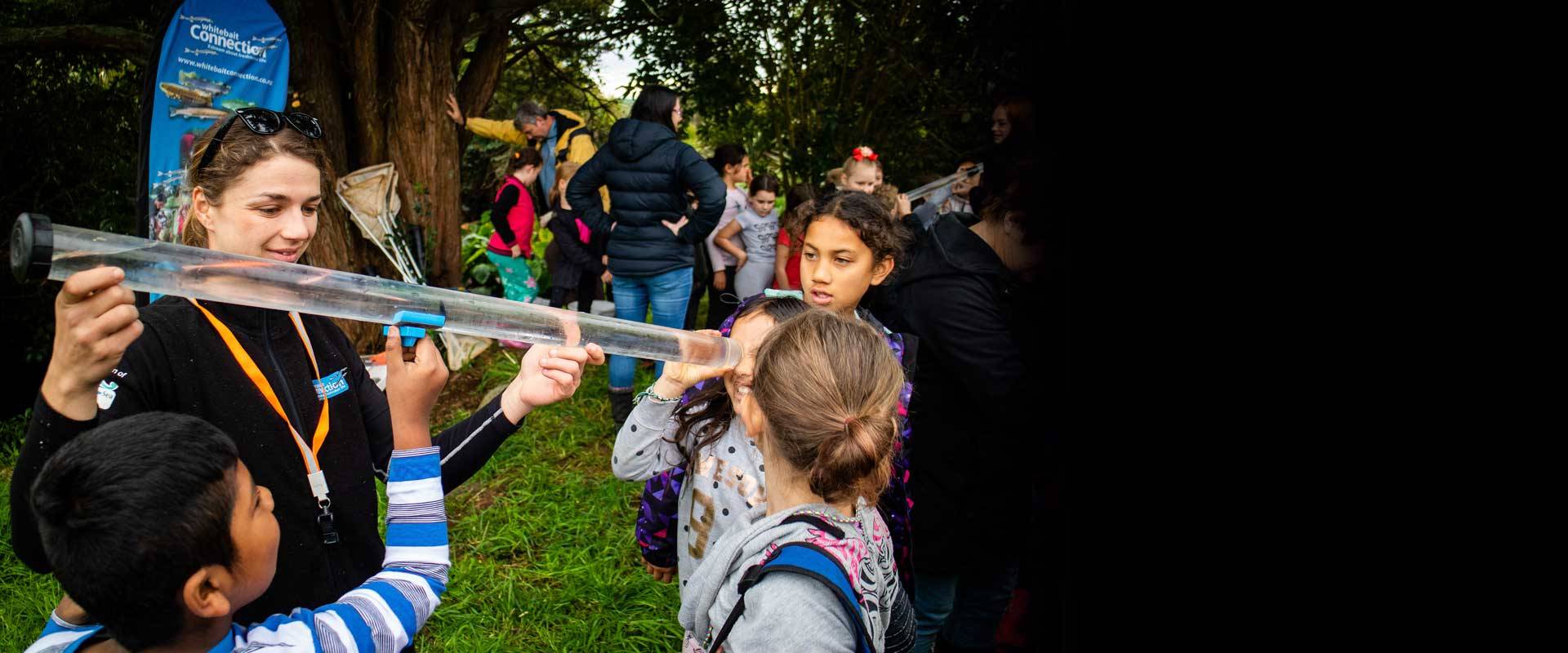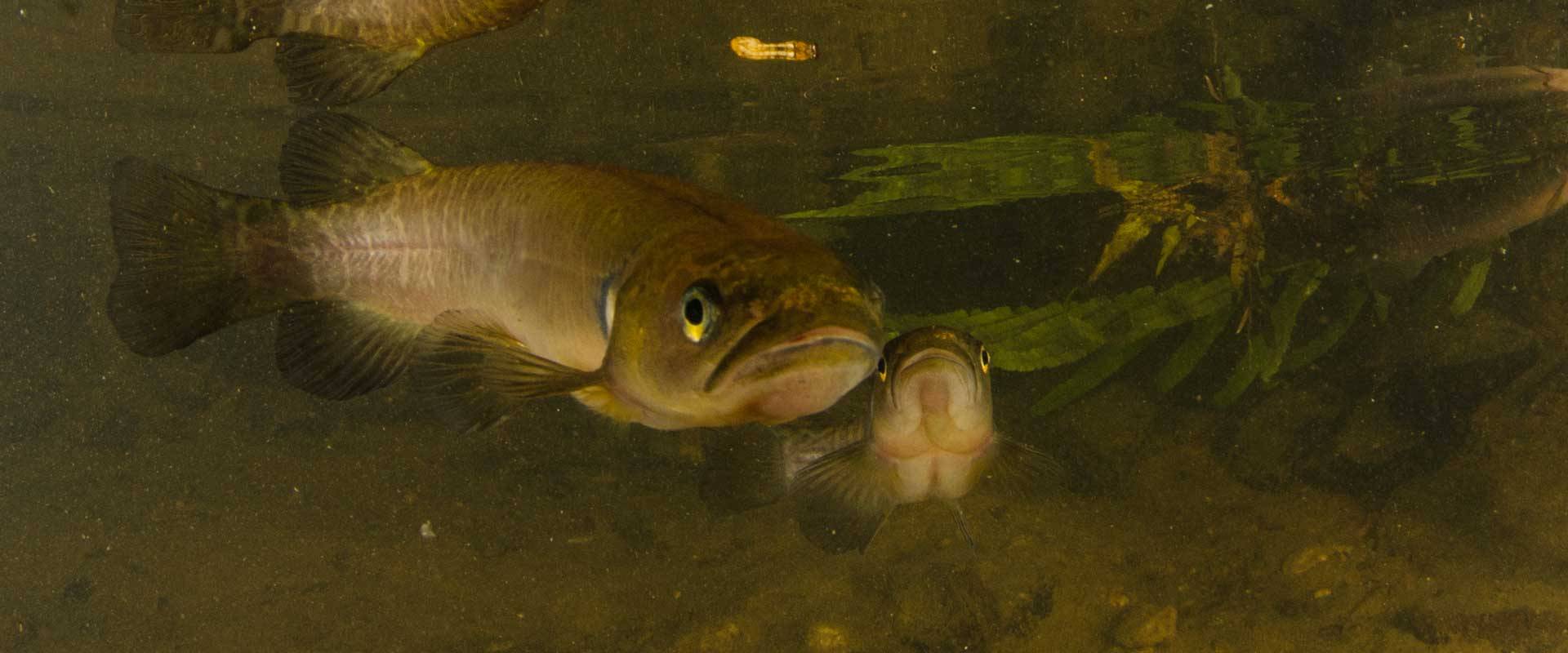In 2021 Whitebait Connection Programme Coordinators Rosie and Ray worked with Ahipara School for programme delivery. Their programme included field trips to upstream and downstream sites of the Wairoa Stream. The Wairoa Stream is connected to the Wainui Stream, which starts in Herekino Forest, at the top of the catchment. Wairoa Stream flows out into Ahipara Bay, at the bottom of the catchment. The catchment is mainly farmland and native bush.
Here are the results from the student's testing at the downstream site:
- Habiat Assessment - The students noticed that there could be more trees planted on the river banks to provide shade for the stream and stop any erosion of the bank
- Electrical conductivity - 250 µS/cm when testing upstream to 1276 µS/cm when testing downstream - the site was at the saltwater wedge
- Temperature - 16.6 degrees celsius
- pH - 7
- Clarity - 62cm
- Macroinvertebrates - freshwater shrimp
- Fish - common bullies, elver (juvenile eels) and juvenile inanga
Searching for macroinvertebrates at the downstream site
Here are the results from the student's testing at the upstream site:
- pH - 6.5
- Electrical conductivity - 260 µS/cm
- Water temperature - 19.6 degrees celsius (The students noticed that there could be more trees planted along the stream banks to provide shade to the water and lower the water temperature)
- Clarity - 32cm
- Macroinvertebrates - woody cased caddisflies, freshwater crab, freshwater shrimp
- Fish - common bullies, elver and inanga
Testing clarity at the upstream site








